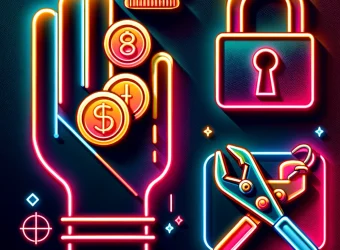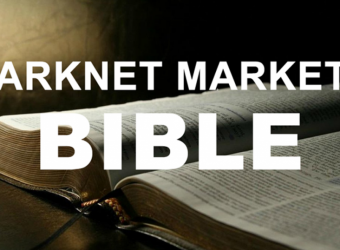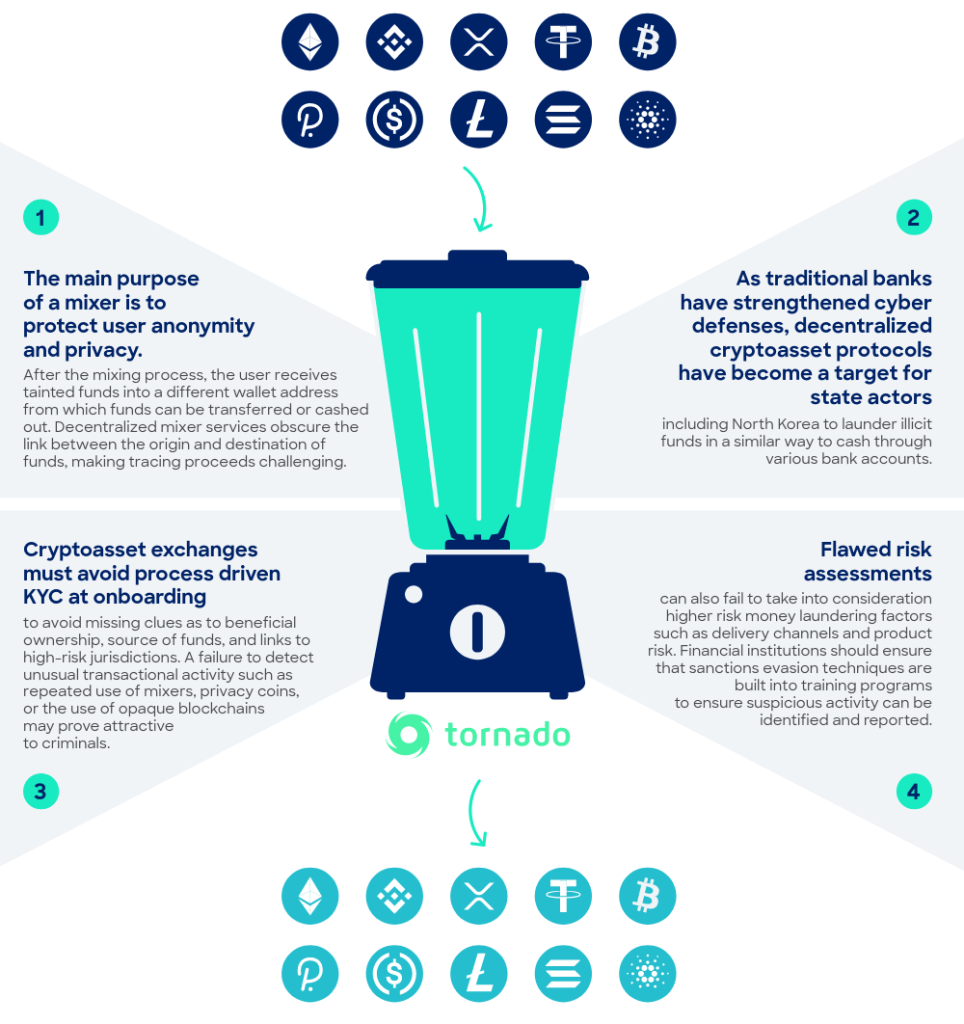In Privacy We Trust: a Concise Handbook of Crypto Wallets to Choose
Cryptocurrency is the new black. Yet, despite its extensively growing popularity, many neophytes still consider dealing with it as hard as rocket science. Furthermore, plenty of users do it involuntarily because darknet market payments are ‘crypto-only’ due to security reasons. Whichever reason brought you here, you’ll, probably, appreciate some advice on how to handle your transactions from fellow crypto enthusiasts.
Rule #1. Refrain from Web Wallets & Exchanges
Do you really need a crypto wallet? No, actually, you don’t. You can turn to familiar web wallets and exchange platforms like Coinbase or Binance. However, following the herd isn’t always the best strategy – they might be headed to slaughter.
So, the bottom line is that even the most reputable of these services can get you in trouble. But how?
- Storing your funds there isn’t the same as keeping money in your bank account. In case something goes wrong, you will be left empty-handed. After all, it is a new financial field, and, to a large extent, it is still unregulated. Hence, you never know if you’re getting into a Ponzi scheme or other scam.
- KYC (Know Your Customer) policy also makes them inherently lacking in privacy. As a client, you will be obliged to submit a substantial amount of personal data. Plus, they can monitor your activity. As a result, if they spot potentially questionable transactions, they can freeze your account or even report you to the authorities. When you’re preoccupied with darknet market activity, this is not the risk you can afford to take.
Rule #2. Shoot for the Stars
If you’re engaged in illicit affairs (and if you’re a part of the dark web community, you probably are), you should protect your privacy at all costs. Moreover, why settle for something mediocre when you can have it all at once? Make a list of the wallet’s parameters that you consider vital, and see which option checks the boxes.
Of course, you have your individual preferences, but, generally, you have to answer these questions:
- Can I use it? Essentially, this means that it should accept the cryptocurrency you need and allow you to do what you want with it (buy, sell, transfer, store, etc.).
- Should I trust it? In other words, check if its functionality is enough to secure your funds and protect your anonymity.
- Is it compatible with my devices? Not all wallets can be used on multiple platforms. Plus, you might also want to verify if it has a mobile version.
- Is it reputable? Check websites like Dread, Reddit, and Trustpilot to see what others think about your choice. Of course, there will be complaints and bad reviews. This is the Internet, after all. Still, try to single out the feedback that seems real and reasonable.
Rule #3. Do Your Research
Naturally, you can’t answer all these questions without spending time on quick research. Thus, try to find as much information as possible, organize it, analyze it, and then make a carefully calculated decision. Here are some of the alternatives you might consider.
Electrum Wallet
Provided that Bitcoin (BTC) is the only cryptocurrency you plan to use, Electrum is your way to go.
- Its functionality is top-notch. Besides traditional capabilities, such as send and receive, it offers many integrations and add-ons, including multisignature transactions and hardware wallets (Ledger, Trezor, Keepkey, etc.).
- It treats security and anonymity with the gravity they deserve. It supports cold storage and keeps your private keys encrypted (by the way, you can export them). In addition, with the combined forces of Electrum and Trustedcoin, you can enable 2-factor authentication (2FA). Its software is free, decentralized, and published under the MIT license.
- It values your time. They use redundant servers that index the blockchain. Therefore, your wallet is always accessible, and your transfers are as swift as possible. All your transactions are examined via the Simplified Payment Verification (SPV).
- You can use it anywhere. It has an interface for everything: mobile, desktop, or even command line. Plus, you can install it on Windows, Linux, Android, and macOS.
Monero GUI Wallet
Indeed, Bitcoin is the most recognizable cryptocurrency. However, if you seek a payment option with enhanced privacy capabilities, you should go with Monero (XMR). To carry out your transactions, you can turn to an open-source graphical user interface (GUI) wallet developed by the community of Monero enthusiasts.
It is decentralized. It takes care of your security and anonymity. Also, it is compatible with hardware wallets (Trezor & Ledger). Still, its main advantage is that it presents the users with a wide selection of versions designed for different customer needs and provides a variety of resources to educate themselves on the topic. You can download:
- Graphical user interface (GUI) wallet. You can opt for a simple or an advanced mode, depending on your intentions and level of expertise. If you are a business owner, check out its Merchant page.
- Command line interface (CLI) wallet. This one will satisfy the sophisticated demands of advanced users, developers, or intermediates.
Unfortunately, there is no mobile version of the interface. Yet, you can use local (Cake Wallet, Feather, and Monerujo) or remote synchronization (MyMonero & Edge) for mobile & lightweight access.
Fair Warning
Monero as a currency is not suitable for multisignature transactions. Hence, don’t waste your time trying to find a Multisig option.
Trust Wallet
In case you search for a wider spectrum of accepted cryptocurrencies, you should take a look at Trust Wallet. With its extensive functionality and integrations, you can buy, earn, send, receive, or exchange 14 cryptocurrencies, including Bitcoin (BTC), Ethereum (ETH), Binance Coin (BNB), Litecoin (LTC), Ripple (XRP), and Dogecoin (DOGE).
If you thought that advanced privacy and security always call for a sophisticated interface, you have to experience this wallet’s ease of use:
- Decentralization is its modus operandi. It doesn’t collect or store any of your data. Plus, it combines built-in private key encryption with password protection.
- You can handle your finances anywhere, anytime because it offers the users the access to mobile app (iOS & Android versions), decentralized application (DApp) browser, and browser extension (Google Chrome, Brave, Opera, and Edge).
Exodus Wallet
Exodus is one of the champions when it comes to the number of accepted cryptocurrencies: it enables you to manage more than 260 cryptos, such as Bitcoin (BTC), Monero (XMR), Ethereum (ETH), Tether (USDT), Litecoin (LTC), XRP (XRP), Solana (SOL), EOS (EOS), Dogecoin (DOGE), and Shiba Inu (SHIB).
This wallet is also helpful if you’re looking for a tool that empowers you to administer your funds in a simple and easily accessible way:
- You can use your credit/debit card, bank account, or Apple Pay to obtain cryptocurrency (USD, EUR, and GBP only), and this is incredibly cool.
- You can select the version that suits your needs best: desktop, mobile, or multichain browser extension.
- It also offers many integrations with other apps and Trezor Hardware Wallet.
As for privacy concerns, you don’t even have to leave any trace of your real-life persona.
Cake Wallet
Let’s be honest, cake is always hard to resist (word pun intended). This particular Cake is a nice treat for those who are on a quest for something simple, open-sourced, and mobile. Yes, a desktop version isn’t available (at least, not yet). But the App Store and Google Play can provide you with the mobile one.
Its functionality is unsophisticated, yet efficient:
- It equips you with instruments to send, receive, exchange, and store Bitcoin (BTC), Monero (XMR), Litecoin (LTC), and Haven (XHV) cryptocurrencies.
- In addition, it is designed to accommodate the needs of an individual user. For instance, it enables you to create several accounts and wallets. You can also back up your wallet locally or to the cloud. Plus, you can select the remote nods you wish to connect to.
It also incorporates a unique Cake Pay feature that allows you to acquire gift cards from a variety of merchants.
Feather Wallet
Do you strive to make your Monero (XMR) experience even more anonymous? Then you should give Feather a shot. It is a free and open-source solution for not only Windows, Linux, and macOS but also for Tails, an operating system known for its enhanced privacy properties that you can use to separate your darknet business from casual browsing.
It is also perfectly compatible with virtual machines and live operating systems. Ledger and Trezor hardware wallets are supported.
Its interface is developed to be fast, simple, and user-friendly. Yet, its set of functions will leave both beginners and experts happy.
Atomic Wallet
Atomic Wallet is the best solution for those who seek to juggle multiple cryptocurrencies. It accepts Bitcoin (BTC), Ethereum (ETH), XRP, Litecoin (LTC), Stellar Lumens (XLM), and more than 300 other coins or tokens.
Here you can freely control your assets without fear of retribution or privacy violation: Decentralization as the basic principle together with encrypted private keys and no need for an account makes it a safe space for darknet market regulars.
It also provides certain services that will bring joy to any casual user:
- ability to purchase cryptocurrency with your credit/debit card (yes, your local currency is accepted too);
- 24/7 customer support;
- cross-platform compatibility (Linux, macOS, Windows, Android, and App Store);
- cashback for exchange.










